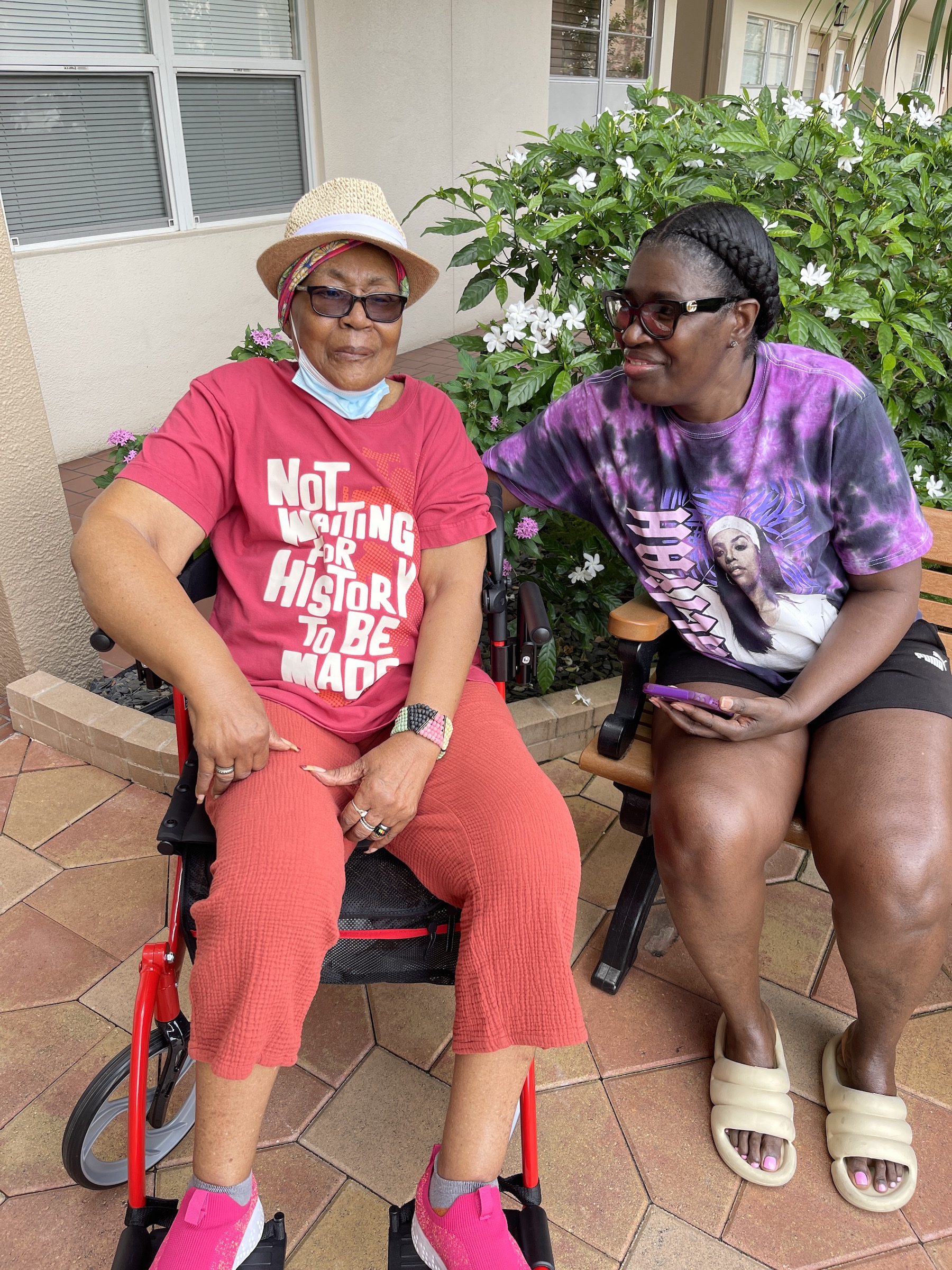Daily Challenges in the Early Stage
In this chapter, we will explore the daily challenges that arise when caring for a loved one with dementia, particularly in the early stages. It is important to note that every person's experience with dementia is unique, and symptoms and behaviors may vary. While there are generally recognized stages of dementia, it is not uncommon for individuals to progress through these stages at different rates.
One of the earliest challenges I encountered while caring for my mother was her extreme restlessness. She would constantly move from one room to another, unable to sit still for more than a few minutes. This constant movement was not only exhausting for me but also proved overwhelming for one of our early caregivers. I vividly recall a moment when my mother requested to be taken to the living room while the caregiver was engrossed in a personal phone call. Frustrated by my mother's constant need for redirection, the caregiver resorted to physically restraining her in her chair. Understandably, this incident led to an honest conversation with the caregiver about expectations and boundaries during her shift. She texted me later that evening to inform me that she would not be returning to work.
My advice during this stage is twofold: patience should always be your number one priority, followed by engaging your loved one in activities they enjoy. For my mother, playing bingo was something she found great pleasure in; therefore, I made sure we played it frequently together. Additionally, we spent many hours watching her favorite TV shows on the ION channel—Law & Order, Chicago Fire, Chicago PD, and FBI became familiar fixtures on our screen.
One of the earliest challenges I encountered while caring for my mother was her extreme restlessness. She would constantly move from one room to another, unable to sit still for more than a few minutes. This constant movement was not only exhausting for me but also proved overwhelming for one of our early caregivers. I vividly recall a moment when my mother requested to be taken to the living room while the caregiver was engrossed in a personal phone call. Frustrated by my mother's constant need for redirection, the caregiver resorted to physically restraining her in her chair. Understandably, this incident led to an honest conversation with the caregiver about expectations and boundaries during her shift. She texted me later that evening to inform me that she would not be returning to work.
My advice during this stage is twofold: patience should always be your number one priority, followed by engaging your loved one in activities they enjoy. For my mother, playing bingo was something she found great pleasure in; therefore, I made sure we played it frequently together. Additionally, we spent many hours watching her favorite TV shows on the ION channel—Law & Order, Chicago Fire, Chicago PD, and FBI became familiar fixtures on our screen.
Refusing to Eat
As time went on and weeks turned into months, my mother's condition continued to fluctuate between different stages of dementia. There came a point where she lost all interest in eating; no matter what food I offered her or how much she used to enjoy it before her diagnosis—she simply refused to eat anything. Witnessing her rapid weight loss left me feeling helpless and afraid that she would fade away before my eyes. Friends and family offered suggestions, but nothing seemed to make a difference. It wasn't until I spoke with a cousin who recommended speaking to my mother's doctor about prescribing Megestrol, a medication known to stimulate appetite. Taking this advice, I obtained the prescription and watched as the effects were nothing short of miraculous. After losing 30 pounds during her period of not eating, it was a relief to witness my mother regain her appetite and see the weight return.
These experiences highlight just some of the challenges faced in the early stages of caring for someone with dementia. Each stage brings its unique set of difficulties, which we will continue to explore in subsequent chapters. It is important to remember that no two individuals will have identical experiences; what works for one person may not work for another. Patience, empathy, and understanding are crucial tools when navigating these daily challenges.
In the next chapter, I will dive deeper into the intermediate stages of dementia and discuss strategies for managing new obstacles that may arise. By sharing my personal journey and experiences alongside practical advice, I hope to provide readers with comfort and guidance as they navigate this challenging path of caring for a loved one with dementia.
Remember, you are not alone on this journey—there are resources available and support networks waiting to assist you every step of the way.
These experiences highlight just some of the challenges faced in the early stages of caring for someone with dementia. Each stage brings its unique set of difficulties, which we will continue to explore in subsequent chapters. It is important to remember that no two individuals will have identical experiences; what works for one person may not work for another. Patience, empathy, and understanding are crucial tools when navigating these daily challenges.
In the next chapter, I will dive deeper into the intermediate stages of dementia and discuss strategies for managing new obstacles that may arise. By sharing my personal journey and experiences alongside practical advice, I hope to provide readers with comfort and guidance as they navigate this challenging path of caring for a loved one with dementia.
Remember, you are not alone on this journey—there are resources available and support networks waiting to assist you every step of the way.
